Obituary: General Manuel Noriega
- Published
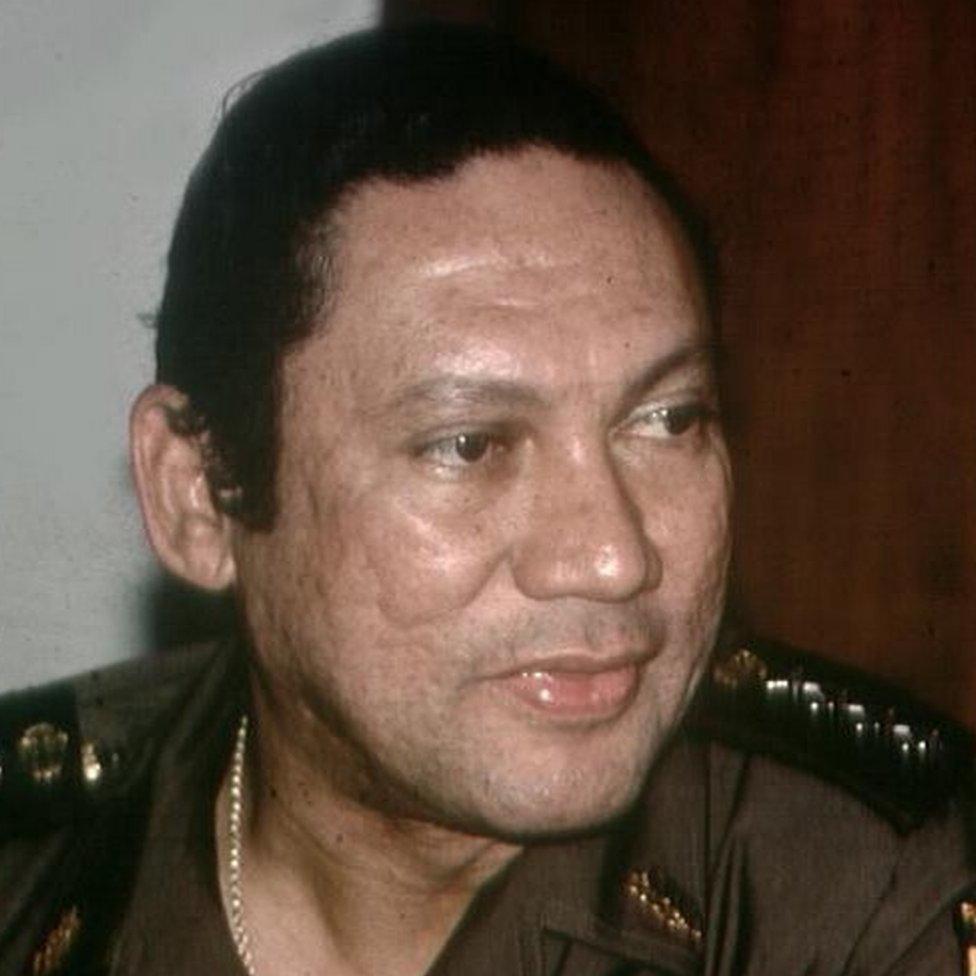
General Manuel Noriega was one of long line of Latin American military leaders who rose to take political power.
Although he was never elected to office he became the de facto leader of Panama serving a six year tenure as military governor.
A strong supporter of the United States he became a key ally in Washington's attempts to battle the influence of communism in central America.
But it was eventually the US that brought about his downfall and his subsequent imprisonment for drugs trafficking and money laundering.
Manuel Antonio Noriega Moreno was born in Panama City on 11 Feb 1934. His family lived in extreme poverty but he was adopted as a young boy and went on to study at a military academy in Peru.
It was here that, according to various accounts, his pro-US leanings were noticed by the CIA with whom he worked for the next three decades. He was soon recognised as a prize asset in a region that was becoming politically hostile to US interests in the wake of the Cuban Revolution.
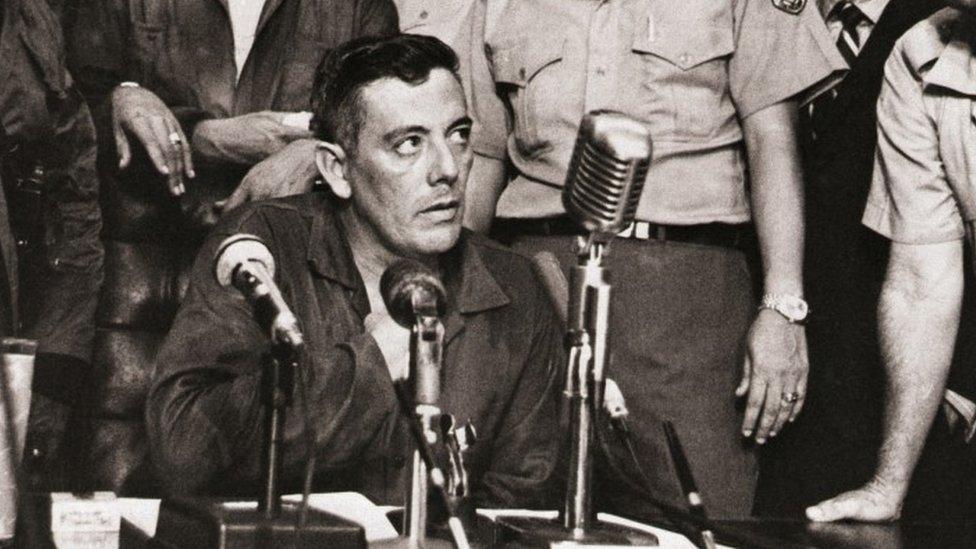
Gen Omar Torrijos led the military coup in which Noriega took part
He rose within the ranks of the Panamanian armed forces and became a key supporter of Gen Omar Torrijos, who led the coup which toppled President Arnulfo Arias in 1968.
Noriega's support was recognised with promotion and appointment as chief of military intelligence.
After Gen Torrijos's death in a mysterious plane crash in 1981, Noriega became the power behind the scenes as head of the security services.
Beheaded
The US relied on Panama as a regional listening post and Noriega obliged with unfaltering support for the Contras in Nicaragua, and in the fight against the FMLN guerrillas in El Salvador.
In 1983 Noriega became commander of the armed forces in succession to Rubén Darío Paredes on the understanding that Paredes would stand as president. However, Noriega reneged on the deal, arrested Paredes and promoted himself to general becoming the de facto ruler of Panama.
He began to play an increasingly repressive role internally in Panama. He called a halt to the counting of votes in the 1984 presidential elections when it became clear his own nominee was going to lose by a landslide.
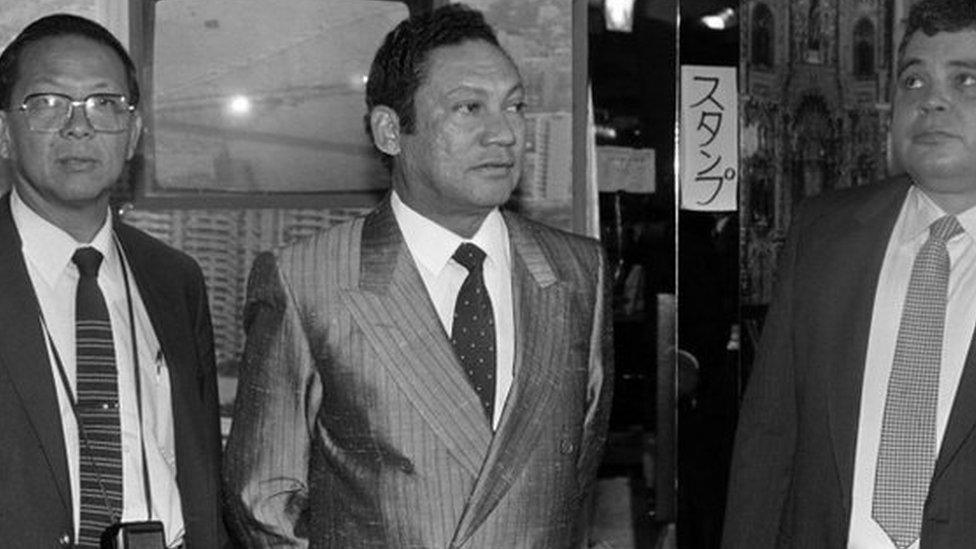
Noriega (c) played an increasingly repressive role in Panama
A year later one of his most vocal political opponents Hugo Spadafora, was seized on his way back to Panama and later found beheaded.
Noriega allegedly played a role in the mid-1980s Iran-Contra affair, which involved the smuggling of weapons and drugs to aid US undercover efforts to support the anti-government forces opposing the Sandinistas in Nicaragua.
However, the US became increasingly suspicious of Noriega amid indications that he was selling his services to other intelligence bodies, not to mention drug-trafficking organisations.
Heavy metal
These tensions became public in 1988 when Noriega was indicted in a US federal court on drug-trafficking charges.
The 1989 presidential election descended into farce. With the opposition certain of a comfortable victory Noriega blocked publication of the results. Former US president Jimmy Carter, in the country as an observer, declared that the election had been stolen.
By mid-December that year, ties with the US had deteriorated so far that President George H W Bush launched an invasion, ostensibly because a US marine had been killed in Panama City, although the operation had been months in the planning.
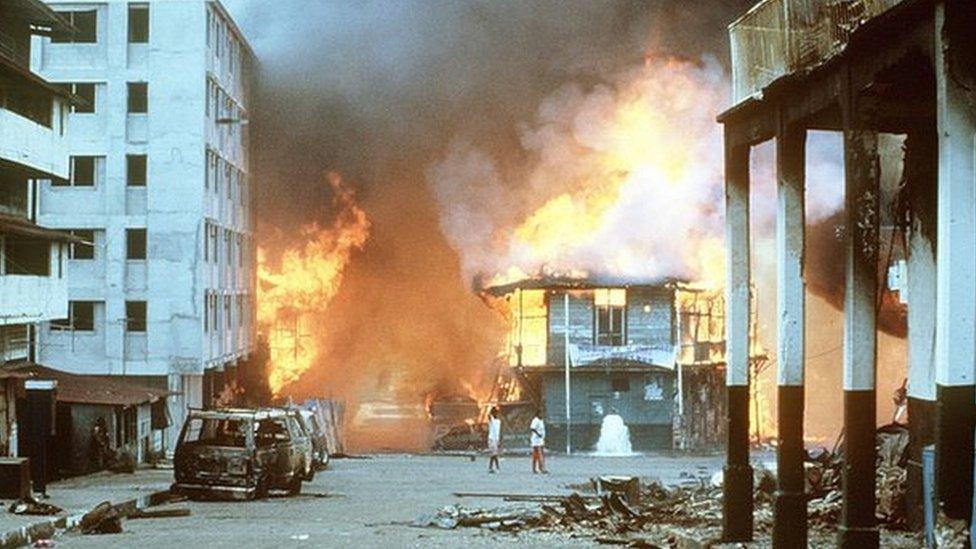
Buildings on fire after US troops invaded Panama in 1989
Noriega sought refuge in the Vatican's diplomatic mission in Panama City. The US tactic to flush him out was to play deafening pop and heavy metal music non-stop outside the building.
By 3 January 1990, it had worked and Noriega surrendered. He was flown to the US with prisoner of war status to face charges of drug-trafficking, money-laundering and racketeering.
His trial there was an international spectacle that revealed titillating details of his personal life including a suggestion that he wore red underwear to ward off the "evil eye".
Money laundering
More seriously he was refused permission by the court to cite details of his work for the CIA in his own defence. The government opposed such disclosures on the grounds it was classified information.
He was released from a Miami jail in 2007 having had his original 30 year sentence reduced to 17 on the grounds of his good behaviour but his legal problems were far from over.
In 1999 a French court had convicted him in absentia of using $3m in proceeds from Colombia's Medellin drug cartel to buy property in France.
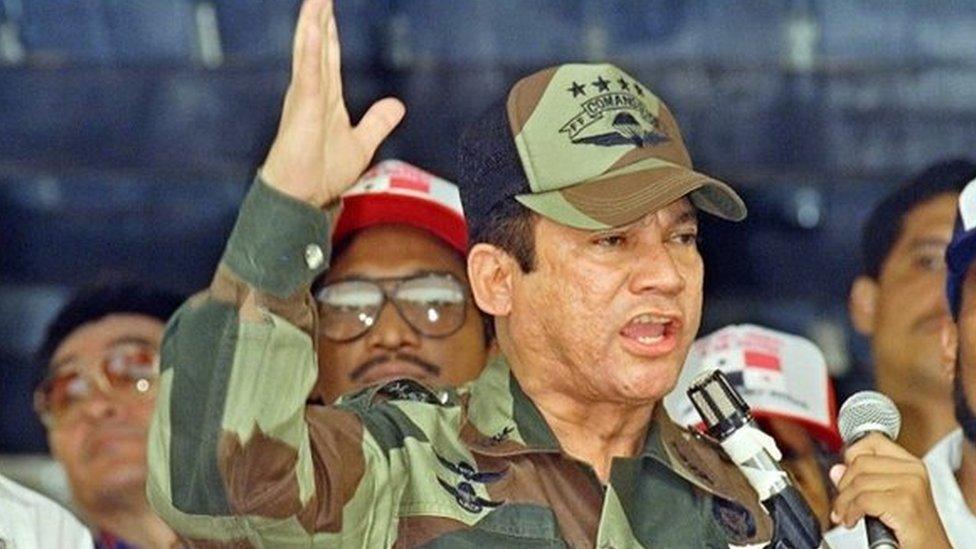
There were indications he was aiding drug traffickers
In March 2010, the US Supreme Court agreed to a French request extradite him to Paris, where he faced a new trial for money-laundering. Noriega, who denied the charges, was found guilty and sentenced to seven years.
The sentence was criticised by Alberto Almanza who headed the Truth Commission on rights abuses under Noriega's rule.
"He'll die in in prison," Mr Almanza said. "And with him the truth."
Lawsuit
His legal odyssey took another turn on 23 November 2011 when a French court approved a request from Panama to send him back home, where he was convicted in absentia of murder, corruption and embezzlement.
He refused the chance to appeal the decision and flew out of Paris on 11 December 2011, escorted by a team of Panamanian officials and a doctor.
On his arrival in Panama he was placed in the El Renacer prison. It was from his cell in July 2014 that he instigated a lawsuit claiming that the company behind the video game Call of Duty: Black Ops II had used his image without permission.
His main complaint was that the game depicted him as a "kidnapper, murderer, and enemy of the state".
Manuel Noriega was an opportunist who used his close relationship with the United States to boost his own power in Panama and to cover the illegal activities for which he was eventually convicted.
A US Senate sub-committee once described Washington's relationship with Noriega as one of the United States' most serious foreign policy failures.